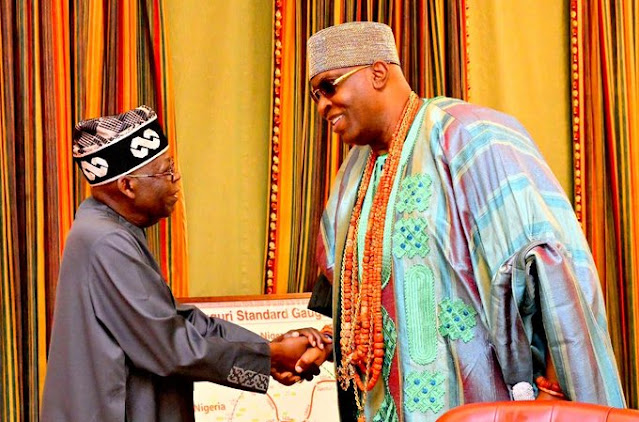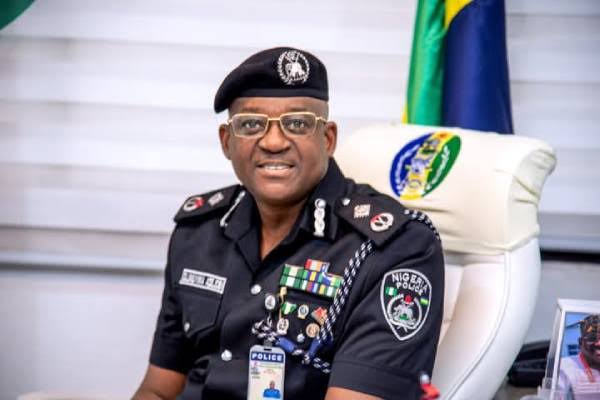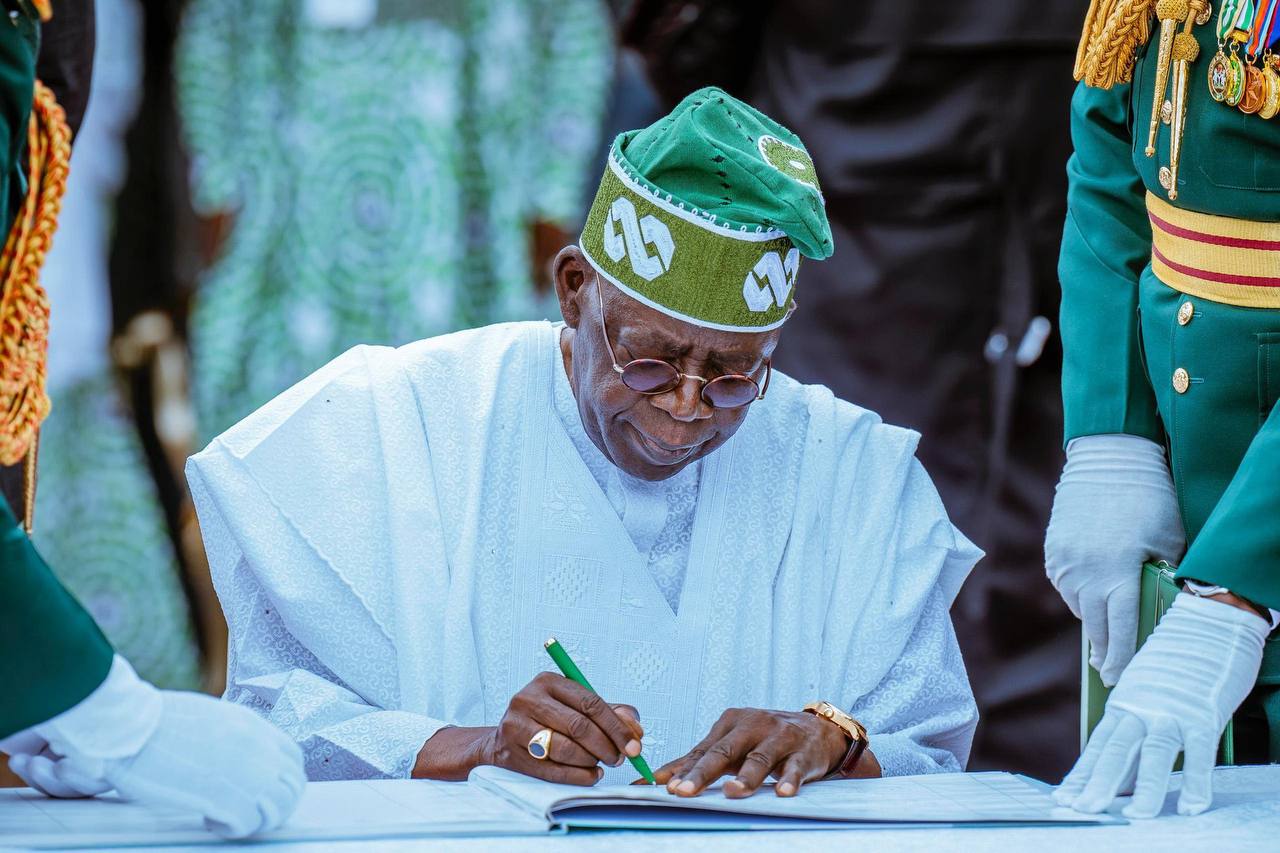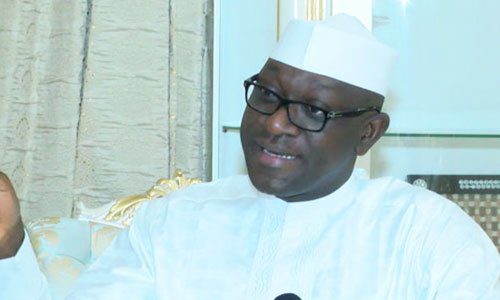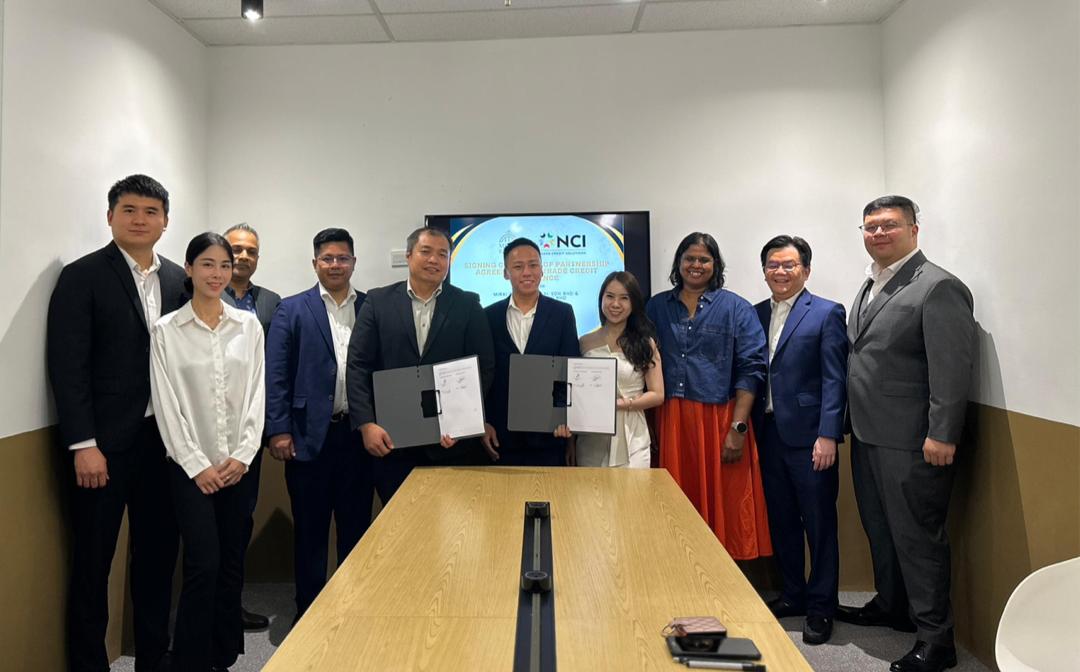On September 3, 2025, Nigerian President Bola Ahmed Tinubu declared that his administration’s bold economic reforms have successfully stabilized the country’s economy, positioning Nigeria for sustained growth and renewed global respect. Speaking at the State House in Abuja during a meeting with His Imperial Majesty, Oba Ghandi Afolabi Oladunni Olaoye, Orumogege III, the Soun of Ogbomosoland, and other traditional rulers, Tinubu emphasized that his policies have addressed long-standing issues such as corruption, smuggling, and currency arbitrage, which he claimed had previously hindered Nigeria’s progress. The statement, initially reported by Linda Ikeji’s Blog, has sparked a mix of optimism, skepticism, and debate, with critics arguing that the economic stability Tinubu touts is not yet felt by ordinary Nigerians. This article delves into the details of Tinubu’s claims, the reforms underpinning them, the reactions from various stakeholders, and the broader implications for Nigeria’s future.
Tinubu’s Economic Reforms: A Bold Vision
Since assuming office on May 29, 2023, President Tinubu has implemented a series of sweeping economic reforms under his “Renewed Hope Agenda,” aimed at addressing Nigeria’s chronic economic challenges. These reforms, which he described as necessary to prevent the country’s economic collapse, include the removal of fuel subsidies, the unification of Nigeria’s multiple exchange rates, and efforts to boost non-oil revenue. During his State House address, Tinubu highlighted the success of these measures, stating, “Years of neglect and self-deception, fake records, smuggling, and all of that denied Nigeria the necessary revenue for progress and development. Then we were confronted again with arbitrage trading of currency, an illusion of selling papers, corruption all over the place, and the integrity of the country and its economy being extremely and adversely challenged. We had to take those actions.”
One of the most significant and controversial reforms was the removal of the fuel subsidy, announced during Tinubu’s inauguration speech in May 2023. The subsidy, which had kept petrol prices artificially low, consumed a substantial portion of Nigeria’s budget—approximately 15%—and was widely criticized as unsustainable. Its abrupt removal led to a tripling of petrol prices, triggering a sharp rise in transportation and production costs that fueled inflation and exacerbated Nigeria’s cost-of-living crisis. According to the BBC, food prices rose by 35% in the aftermath, pushing millions of Nigerians deeper into poverty.
Another key reform was the unification of the naira’s multiple exchange rates, allowing the currency to float and be determined by market forces. This move, intended to reduce arbitrage and improve transparency, resulted in the naira depreciating by more than two-thirds, significantly increasing the cost of imported goods. While proponents argue that this has made Nigeria’s exchange rate more realistic and attractive to foreign investors, the immediate impact has been a surge in inflation, which reached a three-decade high of nearly 34% in 2024, according to Reuters.
Tinubu also emphasized his administration’s success in boosting non-oil revenue, claiming that Nigeria met its 2025 revenue target by August, primarily through sectors such as technology and finance. During a separate meeting with members of the Buhari Organisation on September 2, 2025, he stated, “The economy is stabilized, nobody is trading pieces of paper for exchange rate anymore. We are going up. Today I’m standing before you, I can brag that Nigeria is not borrowing a dime from local banks. The revenue, we have met our target of revenue for the whole year, we’ve met it in August. Non-oil.” This claim, reported by Linda Ikeji’s Blog, suggests a shift toward fiscal discipline and reduced reliance on domestic borrowing, a significant departure from previous administrations.
The Context: Nigeria’s Economic Landscape
To understand Tinubu’s claims of economic stability, it is essential to examine the broader context of Nigeria’s economy in 2025. When Tinubu took office in 2023, he inherited a struggling economy marked by record debt, foreign exchange shortages, a weak naira, high inflation, and declining oil production due to crude theft and underinvestment. The policies of his predecessor, Muhammadu Buhari, including protectionist measures and fixed exchange rates, had deterred foreign investment and exacerbated economic woes. Nigeria, once Africa’s largest economy, had slipped to fourth place in dollar terms by 2024, trailing South Africa, Egypt, and Algeria, according to Bloomberg.
Tinubu’s reforms were designed to address these structural issues, but they have come at a significant cost. The removal of fuel subsidies and currency devaluation sparked a cost-of-living crisis that has left millions of Nigerians struggling to afford basic necessities. Inflation, while reportedly easing to 22.22% in June 2025 after peaking at 34.80% in December 2024, remains a major challenge, with food inflation hitting an 18-year high of 39.84%. The World Bank notes that Nigeria’s fiscal position has improved, with revenues rising from 7% of GDP in 2023 to nearly 12% in 2024, and the fiscal deficit narrowing from 5.4% to 3.0% of GDP. However, these gains have not yet translated into tangible improvements for most Nigerians.
Public debt remains a pressing concern, with Nigeria’s total debt skyrocketing from N87.38 trillion in May 2023 to N149.39 trillion by March 2025, an 80% increase, according to the Debt Management Office. Tinubu’s recent request for approval to secure N34.15 trillion in new external and domestic loans, including $21.5 billion from the World Bank, has raised fears about the country’s growing debt burden. Critics argue that continued borrowing undermines claims of economic stability, especially when critical sectors like education and healthcare remain underfunded.
Reactions: Optimism, Skepticism, and Criticism
Tinubu’s assertion that Nigeria’s economy is now stable has elicited a range of reactions from stakeholders, reflecting the polarized nature of the country’s political and economic discourse. Supporters, including members of the ruling All Progressives Congress (APC), have praised the president’s reforms as bold and necessary. The Soun of Ogbomosoland, during the State House meeting, commended Tinubu for his “incredible strides,” particularly the removal of fuel subsidies and the introduction of the Nigerian Education Loan Fund (NELFUND), which has made higher education more accessible for many students. Ngozi Okonjo-Iweala, Director-General of the World Trade Organization, also endorsed Tinubu’s policies during a meeting in August 2025, stating, “The President and his team have worked hard to stabilize the economy… The reforms have been in the right direction.”
However, critics, including opposition leaders and ordinary Nigerians, argue that the benefits of these reforms are not yet evident in their daily lives. Peter Obi, the Labour Party’s 2023 presidential candidate, responded to Tinubu’s claims by congratulating him on meeting the 2025 revenue target but emphasized that economic stability must be felt by citizens. In a statement on September 3, 2025, Obi wrote, “If indeed the economy stabilizes as you declared, then Nigerians must feel it in their daily lives. Borrowings must stop now. Huge contractors’ bills, which are still owed, should be paid, and critical underfunded projects must now be funded.” He highlighted the dire state of Nigeria’s educational and healthcare systems, calling for immediate investment in these sectors.
Public sentiment, as reflected in social media reactions and comments on platforms like Linda Ikeji’s Blog, is largely critical. Many Nigerians expressed frustration with the rising cost of living, with one commenter stating, “He has been saying this which has now become his phrase three months after his so-called hard economic decisions since 2023… Nigerians are to blame for not crying out loud to condemn the system rather with their known resourcefulness suffering and smiling.” Another remarked, “Indeed turning around for you and your family,” suggesting that the benefits of Tinubu’s reforms are primarily accruing to the political elite.
Analysts have also questioned the validity of Tinubu’s claims. A Daily Trust investigation in July 2025 found that the president’s assertion of economic stability was “misleading and not in tandem with the current realities on ground,” citing persistent high inflation, rising debt, and inadequate electricity supply as evidence. The International Monetary Fund (IMF) projects Nigeria’s GDP growth at 3.4% in 2025, a modest improvement from 3% in 2023, but insufficient to address widespread poverty. The World Bank has warned that 13 million more Nigerians could fall below the poverty line in 2025, with over half of the country’s 220 million inhabitants classified as living in severe poverty.
Broader Implications: Economic and Political Challenges
Tinubu’s claims of economic stability come at a critical juncture as he prepares for a likely re-election bid in 2027. The APC has already endorsed him as its sole candidate, and campaign efforts are underway, with posters appearing in major cities like Lagos. However, the ongoing cost-of-living crisis and public discontent pose significant challenges to his political future. The economic reforms, while praised by international financial institutions like the World Bank and IMF, have sparked protests and unrest, with labor unions threatening strikes in 2024. The government’s spending priorities, such as the purchase of a presidential jet and plans for a luxury yacht, have further fueled public outrage, with critics accusing Tinubu of prioritizing extravagance over citizens’ welfare.
Security remains another major concern, with banditry, kidnappings, and terrorist attacks persisting across Nigeria. Tinubu claimed during his State House address that security has improved, with banditry in the northwest curbed and farmers returning to their lands. However, Amnesty International reported in May 2025 that at least 10,217 people have been killed in attacks since Tinubu took office, casting doubt on his claims of progress. The insecurity in Nigeria’s Middle Belt has also disrupted agricultural production, contributing to food inflation and exacerbating economic hardship.
The success of Tinubu’s reforms will depend on his administration’s ability to translate macroeconomic gains into tangible improvements for Nigerians. Investments in infrastructure, agriculture, and social safety nets are critical to addressing the cost-of-living crisis and reducing poverty. The government’s focus on diversifying the economy away from oil, as evidenced by the growth in non-oil sectors, is a positive step, but sustained efforts are needed to attract foreign direct investment and improve power supply, which remains a major bottleneck for businesses.
The Path Forward: Balancing Reform and Relief
As Nigeria navigates its economic challenges, the debate over Tinubu’s reforms underscores the delicate balance between long-term structural change and short-term relief for citizens. While the removal of fuel subsidies and currency unification may lay the groundwork for a more sustainable economy, the immediate hardships they have caused cannot be ignored. The government’s ability to implement social safety nets, as recommended by Okonjo-Iweala, will be crucial in mitigating the impact of these reforms on vulnerable populations.
Tinubu’s vision of a trillion-dollar Nigerian economy within a decade, as outlined in his Renewed Hope Agenda, is ambitious but faces significant hurdles. The success of this vision will depend on transparent governance, effective debt management, and inclusive policies that prioritize the welfare of ordinary Nigerians. As the 2027 election approaches, Tinubu’s ability to demonstrate tangible progress will be critical to maintaining public support and countering opposition efforts to form a coalition against him.
Conclusion
President Tinubu’s declaration that Nigeria’s economy is now stable reflects his administration’s confidence in its reform agenda, but it also highlights the disconnect between macroeconomic indicators and the lived experiences of Nigerians. While achievements such as meeting the 2025 revenue target and reducing domestic borrowing are notable, the persistent challenges of inflation, debt, and insecurity underscore the need for more comprehensive solutions. As Nigeria stands at a critical economic juncture, the path forward will require a concerted effort to balance bold reforms with meaningful relief for citizens, ensuring that the promise of stability translates into prosperity for all.


